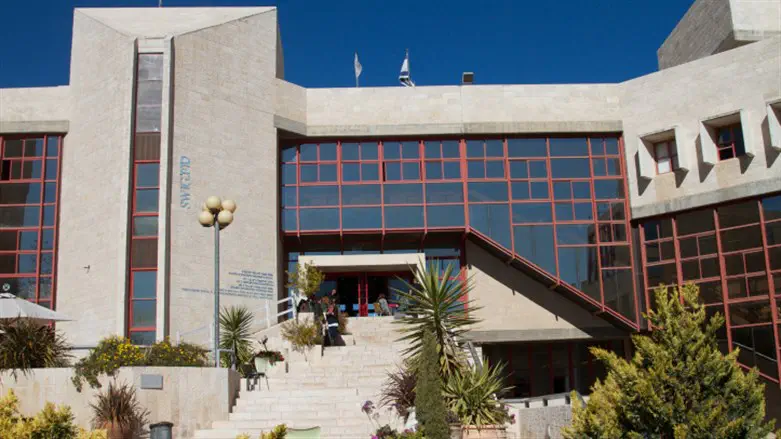
In recent weeks, the Israeli academy has been abuzz. Demonstrations were held at Israeli universities where PLO flags were raised accompanied by anti-Israel chants, while, on the other hand, university administrators forbade students from bringing Israeli flags onto campus. The subject of academic freedom, and whether there should be any limits, became a hot topic.
The Knesset’s education committee held several sessions on this matter and debated a number of questions.
-Is an Israeli academic institution, which receives its budget from the state, allowed to permit incitement against the state on its property?
-Are Israeli university administrators allowed to ban the bringing of Israeli flags onto university property, which actually contradicts the spirit of the Flag and Emblem Law stipulating that every Israeli institution must fly the Israeli flag?
These issues were not supposed to be in dispute at all. Unfortunately, however, we are repeatedly faced with the reality that there are people in the State of Israel who apparently see the State’s very existence as a bad thing and are therefore ashamed of its symbols, even calling the flying of its flag, incitement.
Within this reality, a case has occurred that should concern us all, and it occurred at one of Israel’s best-known academic institutions, the Bezalel Academy.
During the last wave of terrorism in which 19 Israeli civilians were killed by Arab terrorists within a month, an Arab student at Bezalel published a post in support of a terrorist who murdered 5 people in Bnei Brak. This was an act of incitement and an act supporting terrorism. Due to the publication of the post, the police issued a restraining order preventing the student from entering Jerusalem for a number of days, after which he returned to school as if nothing had happened, without any consequences and sans any reaction from Bezalel’s administration.
Two Jewish students studying in the same department with the aforementioned Arab student, found it difficult to concentrate and continue their studies together with a person who posted support for the murder of their friends. The Jewish students therefore confronted the Arab student, calling him out on the fact that he studies at an Israeli institution while publicly supporting the murder of Jews.
The argument intensified, many other Arab students joined in, and one of the Jewish students kicked the first Arab student’s disposable cup of coffee, which was on the floor. No coffee was spilled on the Arab student, and nobody got hurt. However, a few days later, when the same Jewish student returned to Bezalel, a group of Arab students confronted him, called him a Nazi and prevented him from entering the classroom. The Jewish student left.
And then, wonder of wonders, the administration suddenly decided to conduct a disciplinary hearing, not for the student who publicly supported the murder of Jews, not for those who called another student a Nazi, not for those who prevented a student from entering his classroom, but for the two Jewish students who confronted the supporter of the murder of their friends.
In the State of Israel, there is academic freedom and freedom of expression, which left-wing academics love to cite whenever they encounter criticism. Supporters of terrorists, calling someone a Nazi, blocking a student from entering his classroom, seem to, in the eyes of Bezalel, fall under the category of freedom of expression. But apparently, these freedoms exist only for those who work against the State and its citizens. One of the Jewish students was suspended with the possibility of expulsion; the other Jewish student hasn’t had his hearing as yet.
The case at Bezalel should concern us all, and unfortunately, it is not the only case of an Israeli institution acting against those who support the State while ignoring those who openly incite against it. Providing support to a student who lauds terrorism by an institution funded by all of us, should be a red line. The prosecution of those who protest against that student should be a red line.
What is the most concerning of all, is that these academic institutions, including Bezalel, are responsible for the education of the next generation. The State of Israel must not remain silent. The State of Israel must say to such institutions: Enough! Academic freedom is important, freedom of expression is important, but they also have limits. If you, the professor, or you, the administrator, choose to encourage activity against the State of Israel, and if you choose to use your power only against those who support it, then do it yourself and not at the expense of Israeli taxpayers.
The Legal Forum for Israel is providing pro bono legal advice to and public support for the students.
Yotam Eyal, a lawyer, is CEO of the Legal Forum for Israel.